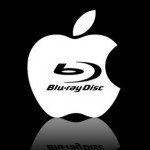My PS3 is on the way back to me. Again. Hopefully this one is fully working. The 2.50 firmware came out too, I don’t know if it fixes the disc read error problem that 2.43 seems to either create or make an existing problem come out. There are early reports that the 2.50 firmware is borked too, but more on that later.
I wrote a mid-week blog on the status of Blu-ray, so some of the news stories that I will cover in this WNR will have been covered by that blog entry already.
 Let’s start with copyright news. Actually, there weren’t that many, other than the fact that EA continues to disrespect their own customers by sayings that nobody gives a damn about DRM. Other than the thousands and thousands of people who have protested and many more that have deliberately pirates your software as a protest. The Pirate Bay copyright trial is set to start in February 2009, this one should be interesting.
Let’s start with copyright news. Actually, there weren’t that many, other than the fact that EA continues to disrespect their own customers by sayings that nobody gives a damn about DRM. Other than the thousands and thousands of people who have protested and many more that have deliberately pirates your software as a protest. The Pirate Bay copyright trial is set to start in February 2009, this one should be interesting.
I’ve talked about the cost of Blu-ray DRM licensing before, and it was interesting to hear Apple CEO Steve Jobs talk about it as one of the reasons why Macs don’t have Blu-ray support yet (more on the Blu-ray no-show in Mac later on). Could the BDA be digging their own grave with their greed over DRM (and other types of) licensing? AACS, BD+, BD-J, Dolby TrueHD, DD+, DTS-HD … the licensing costs do add up, and each disc, player or software sold has to pay licensing fees. Blu-ray hardware prices will come down if unlicensed players start to flood the market, which is what happened with DVDs when the Chinese manufacturers started doing their thing. The BDA has been working quite hard to prevent Chinese firms from making Blu-ray players probably for this very reason, but in these harsh economic times, the extra cost of Blu-ray manufacturing and production may be very hurtful for the fledgling format.
 Onto HD news now, as mentioned earlier, the rumours of Blu-ray coming to the Apple Mac and giving Blu-ray a huge boost of confidence proved to be false. Not only that, Steve Jobs actually called it a ‘bag of hurt’. Ouch.
Onto HD news now, as mentioned earlier, the rumours of Blu-ray coming to the Apple Mac and giving Blu-ray a huge boost of confidence proved to be false. Not only that, Steve Jobs actually called it a ‘bag of hurt’. Ouch.
Before people accuse Apple being anti Blu-ray, Apple is actually an important member of the BDA and sits on their board of directors. Of course, Apple have their own agenda in regards to iTunes and movie downloads, but Apple is said to have worked closely on the Blu-ray specs, and also had a hand in crafting the HD DVD specs through their involvement in the DVD Forum. But the fact remains that adding Blu-ray to Apple Macs is a costly proposition at the moment, possibly another $300 in hardware and licensing costs alone, not to mention the need to upgrade QuickTime to play Blu-ray movies. Steve Jobs also talked about waiting for Blu-ray to take off before burdening customers with the cost, and that’s true. How many people actually have Blu-ray movies right now? And how many want to watch them on Macs? How many people even watch DVDs on Macs?
And even though Apple’s can’t play Blu-rays, the new MacBooks will now feature accelerated decoding of H.264, one of the major video codecs used by Blu-ray. This should pave the way for eventual Blu-ray support.
There’s a lot of competition for Blu-ray these days, despite HD DVD dying. Toshiba still wants to beat Blu-ray, but using upscaled DVD instead (which was their original plan before HD DVD). This article talks about it, but what I found most interesting in the article were the Blu-ray hardware figures for Australia. Apparently, in Australia, only 17% of HDTV owners have Blu-ray players. Out of these, only 7.5% are standalone players, the rest being PS3s (I don’t know if these figures count all PS3 owners as Blu-ray owners, or just the ones that use it to play Blu-ray movies). In other words, only 1.3% of HDTV owners in Australia have Blu-ray standalones. Then there’s DISH Network’s new 1080p service, which early reviews have suggested that it equals Blu-ray in terms of quality. You remember a couple of weeks ago that the BDA threatened to sue companies that used the term “Blu-ray quality” to describe their VOD and subscription services. Maybe those claims weren’t so exaggerated, because in the end, it’s just an issue over bandwidth – 40 Mbps will give you Blu-ray quality video and audio.
Last week’s Iron Man led surge came to an end, nearly, this week. The Nielsen VideoScan stats for the week after Iron Man showed a 46% drop for Blu-ray sales due to Iron Man sales falling away (DVD sales recorded a smaller, but still significant 17% drop). Predictions are still saying that Blu-ray sales will significantly grow in the next four years, with annual hardware sales set to jump to 40 million if the predictions are true. This means Blu-ray hardware will have to sell 8 times the current figure for this prediction to come true. Easy!
![]() And so we come to gaming. A new PS3 (and PSP) firmware was released during the week, version 2.50. When I first posted the news, I warned people to wait before updating as new firmware will usually introduce more problems than it fixes (wait for the eventual .01 incremental updates to fix these problems). I was right, as the 2.50 firmware introduced quiet a few serious problems, such as the B(lack)SOD problem after the firmware update, B/W video playback problem and a few other things. There are probably solutions or work-arounds for most of them, but it’s probably safer to wait for 2.51 which I’m sure will be released soon if the problem identified are serious enough. I must say that Sony’s handling of the PS3 firmware updates haven’t been exactly up to standards that people expect. It’s great that they’re updating the PS3 constantly to add more value, but it’s another if it breaks people’s PS3s because the firmware haven’t been properly tested (and they can’t possibly be, not in the relatively short time-spans between updates).
And so we come to gaming. A new PS3 (and PSP) firmware was released during the week, version 2.50. When I first posted the news, I warned people to wait before updating as new firmware will usually introduce more problems than it fixes (wait for the eventual .01 incremental updates to fix these problems). I was right, as the 2.50 firmware introduced quiet a few serious problems, such as the B(lack)SOD problem after the firmware update, B/W video playback problem and a few other things. There are probably solutions or work-arounds for most of them, but it’s probably safer to wait for 2.51 which I’m sure will be released soon if the problem identified are serious enough. I must say that Sony’s handling of the PS3 firmware updates haven’t been exactly up to standards that people expect. It’s great that they’re updating the PS3 constantly to add more value, but it’s another if it breaks people’s PS3s because the firmware haven’t been properly tested (and they can’t possibly be, not in the relatively short time-spans between updates).
Speaking of updates, the Xbox 360 is about to have a major one next month, probably the largest since the Xbox 360 launched due to the launch of the new dashboard interface (to compete with PS3 Home, no doubt). The disk space requirements for the new update is quite big, 128 MB or more, and many people just don’t have that much space, especially if they have Core/Arcade versions that don’t come with HDDs. Spotting this potential problem, Microsoft has done the right thing and will give away free memory units and give heavy discounts for HDDs to people that don’t have them. This should help the Xbox 360 build up some momentum for the holiday season, and if the September NPD figures are anything to go by (huge jump in Xbox 360 sales, beating the PS3 quite handsomely), then it could be a good holiday period for the 360 in a year that hasn’t been that great. The full NPD analysis will be posted early next week as usual.
That’s it for this week I think. No, let me check again. Yep, that’s it. No more. All done. Were you expecting more? Were you disappointed? That’s a shame, and I am sorry about it all. Oh well, let’s hope next week’s a bit better.















